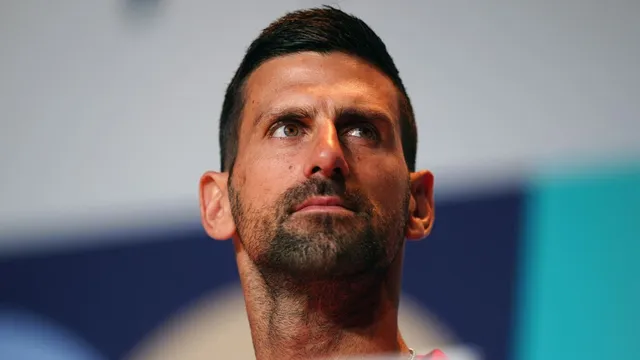
Novak Djokovic reveals ongoing trauma from 2022 Australia deportation
2025-01-10 09:37- Novak Djokovic was deported from Australia in 2022 due to his COVID-19 vaccination status.
- Despite winning the Australian Open in 2023, Djokovic expressed ongoing trauma when traveling to Australia.
- He aims for his 11th Australian Open title and an unprecedented 25th Grand Slam title.
Express your sentiment!
Insights
In 2022, Novak Djokovic was deported from Australia due to his unvaccinated status against COVID-19. His visa was canceled by the immigration minister, who claimed that Djokovic's presence could worsen anti-vaccine sentiments in the country. After spending time in an immigration hotel, Djokovic's visa was initially reinstated by a judge, but the immigration minister eventually revoked it again, leading to Djokovic's deportation. Following a change in Australia's government and border policies, Djokovic was granted a new visa in 2023, which allowed him to return and compete in the Australian Open. Despite his success in the 2023 tournament, he has expressed that he still experiences trauma when arriving in Australia and passing through immigration control, as he fears facing similar issues. Djokovic hopes to secure another title at the Australian Open and continues to pursue his goal of winning an unprecedented 25th Grand Slam title. Throughout this ordeal, he has stated that he holds no resentment or grudge against the authorities involved.
Contexts
In January 2022, Novak Djokovic, the Serbian tennis star and World No. 1 player, found himself at the center of an international controversy concerning his visa status in Australia. Djokovic traveled to Australia to participate in the Australian Open, but his entry was blocked by Australian authorities due to his unvaccinated status and the government’s strict COVID-19 regulations at the time. Despite having received a medical exemption for not being vaccinated, Djokovic was detained upon arrival at Melbourne Airport, leading to a legal battle over his visa and the right to compete in the tournament. This situation garnered significant media attention, highlighting the tensions between sports, health regulations, and individual rights during the pandemic. The Australian government cited public health and safety as key reasons for their decision to deport Djokovic. Following his initial detention, Djokovic appealed the decision, and a federal court granted him the right to stay in Australia temporarily. However, the Minister for Immigration intervened, exercising his discretion to cancel Djokovic's visa again on the grounds that it was in the public interest to do so. This action further intensified the debate surrounding the implications of personal choice versus community safety during a health crisis, resonating strongly with both supporters and critics of Djokovic. As the situation escalated, Djokovic's legal team argued that he had complied with the entry requirements to Australia, claiming that his previous COVID-19 infection immunized him from needing a vaccine. However, Australian authorities maintained their stance that the entry restrictions applied uniformly to all travelers, regardless of their individual circumstances. The case underscored the complexities faced by international athletes and the influence of national regulations on their participation in global events, such as the Grand Slam tournaments. In the court's final ruling, Djokovic's appeal was dismissed, leading to his deportation from Australia. The incident had lasting effects on Djokovic's career and the broader sporting context, prompting discussions around vaccination requirements in sports and the potential consequences of government regulations on player participation. It also highlighted the highly polarized views on vaccination and public health measures worldwide. Following the deportation, Djokovic’s participation in subsequent tournaments faced uncertainty, but he managed to continue competing in various international events thereafter, albeit under changing regulations and scrutiny. The fallout from this incident continued to ripple through the tennis community and global sports, creating a precedent for how similar situations may be handled in the future.